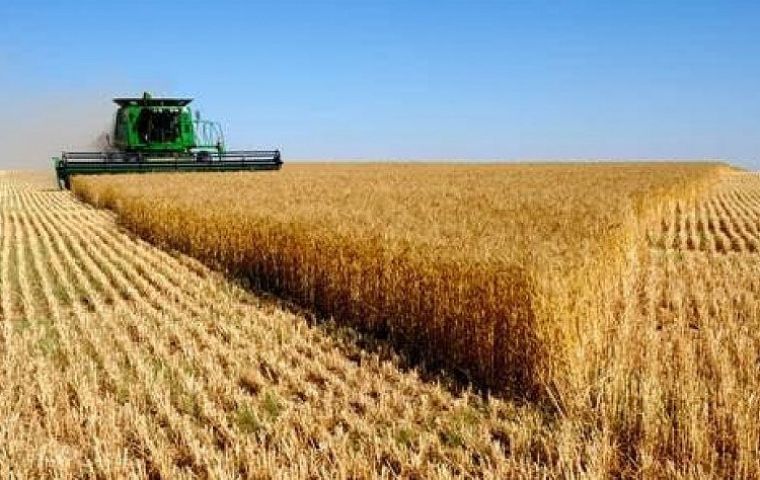MercoPress. South Atlantic News Agency
Argentine drought will force Brazil to purchase wheat in non-Mercosur suppliers
 Normally Brazil purchases up to six million tons of wheat from Argentina, but the Mercosur partner has insufficient supplies to export
Normally Brazil purchases up to six million tons of wheat from Argentina, but the Mercosur partner has insufficient supplies to export Brazil will need alternative wheat sources because Argentina, its traditional supplier, is facing a serious crop insufficiency as a result of a serious drought that has curtailed production and compromised export volumes. Market analysts expect Brazil will thus have to look for supplies in potential providers such as the United States, Canada and even Russia.
Brazil is a net wheat importer and neighboring Argentina, which is currently suffering a prolonged drought, is its most important source of the cereal.
“Generally, Brazil buys some 6 million tons from Argentina,” said StoneX risk management consultant Fabio Lima. But now, Brazil is anticipated will have to look for one to 1,5 million tons of imports outside the Mercosur trade block.
Brazil is one of the world’s largest wheat importers, with domestic consumption above 12 million tons annually, below its output capacity, although the southern states of the country are planning a long term scheme to lessen foreign wheat dependence.
During the 2021/2022 commercial year, ending in July, Brazil imported only about 155,000 tons of wheat from countries outside Mercosur. However in the previous season, Brazil was forced to purchase almost 900,000 tons from the United States, Canada and Russia, according to Brazilian government data.
And besides the drought in Argentina, Brazil’s key producer state, Parana is facing excessive rains, also compromising domestic supplies and harvest yields.
The Mercosur Common External Tariff (TEC) is down to zero for imports of certain produce this year, including wheat. Brazil also has an annual 750,000 tons wheat import quota that is exempt from tariffs.
Lima said it is difficult to estimate how much wheat will be coming from outside Mercosur. He cited rumors of a potential cargo from Russia, but could not elaborate. Besides since Russia stopped protection duties of the so called “Black Sea corridor”, on a deal brokered by UN and Turkey to help Ukraine shipments of stored grains, blaming drones attacks by “terrorist” drones, the international price of wheat has surged 6% to 8%.
Carlos Cogo, from Cogo Intelligence, said that United States, Canada and Russia are potential alternative suppliers of wheat for Brazil. But he also cautioned that supplies from those countries will be dearer, potentially fueling domestic inflation.
According to Cogo data, Argentina has already sold almost 9 million tons from their 2022/2023 crop, with very little additional supplies for export and pushing prices higher, which could also face government quotas, fearing a further jump in Argentina's inflation, which is holding national elections in less than a year's time.




Top Comments
Disclaimer & comment rulesCommenting for this story is now closed.
If you have a Facebook account, become a fan and comment on our Facebook Page!